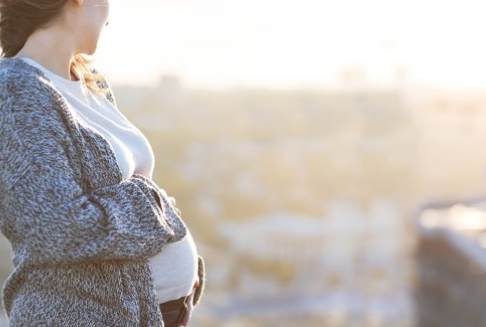Pregnancy & Air Pollution Risks (Effects of air pollution on placenta health and fetal development)

Pregnancy is one of the most beautiful phases in a woman’s life, filled with excitement, dreams, and hope for the little one growing inside. It’s natural to feel protective and want the best for your baby.
We often focus on what we eat or how much we rest, but we sometimes forget about the air we breathe. Research shows that air pollution can affect both the placenta (which connects mother and baby) and the baby’s development in the womb, sometimes leading to slower growth, low birth weight, or early delivery.
The good news is that awareness helps. Even though we can’t control the air entirely, small mindful steps can help you stay safe, calm, and healthy, creating the best environment for your baby to grow.
How Air Pollution Affects the Placenta
The placenta is a lifeline between mother and baby. It delivers oxygen and nutrients while removing waste products. However, when the air a mother breathes is contaminated, this critical organ becomes vulnerable.
Studies reveal that pollutants such as PM2.5, PM10, nitrogen dioxide (NO₂), sulfur dioxide (SO₂), and polycyclic aromatic hydrocarbons (PAHs) can alter placental growth and function. These microscopic particles can penetrate deep into the lungs, enter the bloodstream, and reach the placenta, where they disrupt normal cellular processes.
Studies show that air pollution triggers inflammation and epigenetic changes, subtle shifts in how genes behave without altering DNA. This can reduce the placenta’s ability to transport oxygen and nutrients, limiting healthy fetal growth.
Even more concerning, black carbon particles from vehicle exhaust have been detected on the fetal side of the placenta. This suggests pollutants may be crossing directly into the developing baby’s environment.
Risks to Fetal Development
When the placenta’s efficiency is compromised, the baby’s growth and development are at risk. Air pollution exposure has been strongly associated with conditions such as:
- Fetal Growth Restriction (FGR)
When the baby does not grow at the expected rate.
- Preterm Birth (PTB)
When birth occurs before 37 weeks of gestation.
- Low Birth Weight (LBW)
When the newborn weighs less than 2.5 kilograms.
These risks are particularly high during the first and second trimesters, the most critical stages of organ and brain development. Pregnant individuals aged 35 and above may face even greater vulnerability.
Babies exposed to pollution in the womb also show elevated inflammatory markers such as CRP, TNF-α, and IL-6, signals of stress and inflammation. In the long run, this may affect immune development, metabolism, and cognitive growth.
Protecting Pregnancy from Air Pollution
While pollution cannot be eliminated overnight, proactive choices can help reduce exposure and safeguard both mother and baby:
1. Monitor Air Quality:
Check the Air Quality Index (AQI) regularly. On high-pollution days, limit outdoor activities and keep windows closed.
2. Use Air Purifiers:
High-efficiency particulate air (HEPA) filters can significantly reduce indoor pollutant levels.
3. Stay Hydrated and Eat Antioxidant-Rich Foods:
A diet rich in fruits, vegetables, and omega-3 fatty acids helps combat oxidative stress.
4. Incorporate Gentle Physical Activity:
Regular movement supports better circulation and oxygen flow. For instance, many expectant mothers explore Yoga in Bangalore as a safe way to stay active in an urban environment where pollution levels fluctuate.
5. Breathe with awareness.
Deep and slow breathing calms the nervous system and improves oxygen intake. If outdoors, choose spots away from traffic. You can also try Online Yoga Classes offering guided breathing and relaxation sessions from home.
What’s Happening Around the World
Scientists and health professionals are working hard to understand how air pollution affects pregnancies and how to minimize its impact. Cities are becoming more conscious about green spaces, cleaner fuels, and sustainable practices. While big changes take time, your daily choices like using less plastic, supporting clean-air initiatives, or even planting a tree contribute to a healthier world for your baby’s future.
Read Also: Advancements in Sheet Metal Bending Technology
In Conclusion
Air pollution may be an invisible challenge, but awareness turns it into something you can manage with grace and mindfulness. By understanding how it affects the placenta and your baby’s growth, you gain the power to make small yet meaningful changes from mindful breathing and nourishing food choices to creating a cleaner, calmer space around you.
So breathe easy, move gently, and trust your body’s wisdom. With awareness, balance, and kindness, you’re already creating the safest, most loving home your baby could ask for right inside you.





